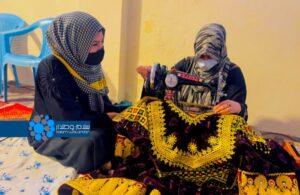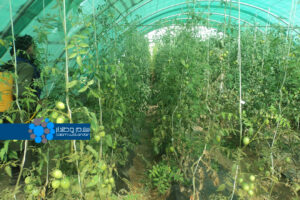KABUL (SW) – Salam Watandar recently conducted a conversation with 55 young individuals to explore the role of mediation in marriage formation, which underscores the significant impact of intermediaries in the marriage process in Afghanistan.
Among the 55 interviewees, 22 were married, and 33 were single. Of the married youths, 14 reported meeting their spouses through relatives or friends, leading to marriage after getting to know each other.
Fereshta, a resident of Kabul, shared her experience: “Seven years ago, I was introduced to my husband through a relative. After getting to know each other, we decided to marry. My father’s uncle frequently visited our home, and his neighbor was looking for a wife for his son. My uncle introduced me to him, and I am grateful to his family, who are very understanding.”
Ahmad, another Kabul resident, emphasized the importance of the mediator being familiar with both sides, saying: “The person acting as the intermediary must understand both sides well, because marriage is a complex matter and it involves two people who will spend many years together.”
Among the 33 single youngsters, 28 agreed that an intermediary could help establish communication between girls and boys and their families.
Belqis, a 20-year-old single girl, said that the presence of a mediator can be beneficial in fostering communication between two families. “If the mediator is compassionate and knowledgeable, their involvement can be helpful. However, if they create pressure or impose restrictions, it could become problematic,” she added.
Many youths stressed that intermediaries should only play the role of introducing the couple to each other and should not interfere in the final decision-making process.
At the same time, some families of the young people who also spoke in this report emphasized that the advice given by intermediaries should be structured and regulated. They suggested that the government could facilitate this process by creating official offices to organize consultations for young people.
Kobra, a mother of five, commented, “Mediation is helpful because it makes it easier for young people to get married. If it’s done legally, it can help young people choose their future spouse more easily.”
Shoaib, a father of four daughters and one son, said, “Mediation has existed for a long time, but it was more traditional. If this process is organized systematically, it could help young people find a spouse who meets their criteria more easily.”
Omar Mukhtar Nikzad, a religious scholar, emphasized the value of mediation in Islam. He said, “The Prophet Mohammad (PBUH) said that the person who guides others to do good is as if they have performed the good deed themselves, and they will be rewarded for it. Mediation is a noble act, but the mediator has no responsibility afterward. They should not intervene in the marriage decision.”
Mustafa Aqeli, a sociologist, explained that mediation in marriage can be beneficial if the mediator is well-acquainted with both sides. “In societies with specific norms, such as Afghanistan, family, religious, or social criteria often play a significant role in choosing a spouse. A mediator can help ensure these criteria are met. Mediation is useful when it serves as guidance.”
The Ministry of Promotion of Virtue and Prevention of Vice (MoPVPV) has expressed its commitment to developing plans that improve the marriage process for young people. Safiullah Islam Khyber, spokesperson for the ministry, said: “There are programs aimed at facilitating marriage and educating the public to improve attitudes and eliminate harmful cultural practices.”
In Afghanistan, mediation in marriage is considered a cultural and social tradition. Many believe it can strengthen family relationships and reduce tensions in the marriage process.






